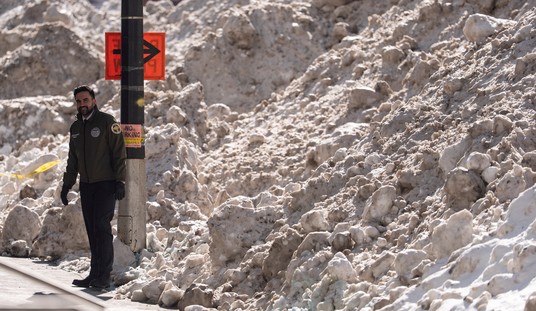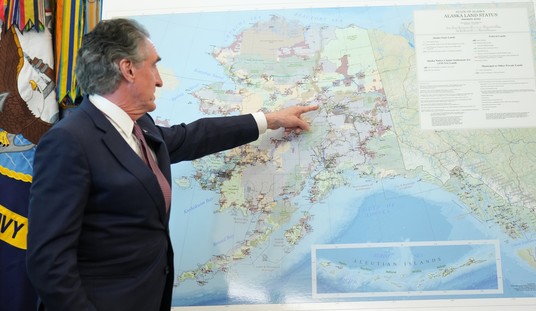One of the key parts of the Iran nuclear deal is a requirement that the President report regularly to Congress on Iran’s compliance:
“(6) COMPLIANCE CERTIFICATION.—After the review period provided in subsection (b), the President shall, not less than every 90 calendar days—
“(A) determine whether the President is able to certify that—
“(i) Iran is transparently, verifiably, and fully implementing the agreement, including all related technical or additional agreements;
“(ii) Iran has not committed a material breach with respect to the agreement or, if Iran has committed a material breach, Iran has cured the material breach;
“(iii) Iran has not taken any action, including covert action, that could significantly advance its nuclear weapons program; and
“(iv) suspension of sanctions related to Iran pursuant to the agreement is—
“(I) appropriate and proportionate to the specific and verifiable measures taken by Iran with respect to terminating its illicit nuclear program; and
“(II) vital to the national security interests of the United States; and
“(B) if the President determines he is able to make the certification described in subparagraph (A), make such certification to the appropriate congressional committees and leadership.
The next certification to Congress is due in mid-October and the odds of it surviving seem slight. Not only is Trump pre-disposed to pulling out of the deal, Iran is making it very easy for him to do so.
According to the text of the agreement passed by Congress, the key benchmark for evaluating the deal is Iranian compliance with UNSCR 2231. If that is the standard, Iran is out of compliance in a way that cannot be cured.
Iran was already violating that part of UNSCR 2231 by transferring weapons to proxies in Yemen: in June the U.N. documented multiple transfers through existing routes, and later Reuters documented additional transfers going through Kuwaiti waters.
The German daily Welt revealed Iran is separately violating UNSCR 2231 by transferring weapons to Russia for maintenance via Syria. The article is in German but Google Translate is good enough to get what’s going on – the transfers are happening and they’re a violation of the resolution – plus Welt published a satellite photo showing an Iranian arms plane sitting in a Russian-operated airbase in Syria (the plane is a Boeing, the airbase is Khmeimim). Consider for a moment how Welt came to be in possession of satellite imagery of an arms transfer at a Russian airfield.
An area of particular interest to the US is Iran’s development of ballistic missile technology. Ballistic missiles plus nukes is not something you want your typical state sponsor of terror to have.
Chanting “Death to America,” Iran’s parliament voted unanimously Sunday to increase spending on its ballistic missile program and the foreign operations of its paramilitary Revolutionary Guard, part of a sanctions bill mirroring a new U.S. law targeting the country.
…
Under terms of the bill, some $800 million will be put toward several projects, including the Defense Ministry and its intelligence agencies. Among the agencies receiving money would be the Revolutionary Guards’ Quds force, an expeditionary force run by Gen. Qassem Soleimani, who has been advising forces in Syria and Iraq.
Quick note, both Soleimani and Quds Force are under US sanctions for terrorism.
The also slapped travel bans on US military personnel and members of Congress, keeping them from visiting Iran. I AM NOT MAKING THAT UP.
There are reports that a movement is underway to demand the Iranians open more of their nuclear infrastructure to international inspection. The logical question to ask here is what kind of inspection regime do we actually have when there are nuclear facilities that are off limits and the Iranians have the ability do their own inspections or delay inspections by up to 24 days.
American officials have already told allies they should be prepared to join in reopening negotiations with Iran or expect that the United States may abandon the agreement, as it did the Paris climate accord. And according to several foreign officials, the United States has begun raising with international inspectors in Vienna the possibility of demanding access to military sites in Iran where there is reasonable suspicion of nuclear research or development.
If the Iranians balk, as seems likely, their refusal could enable Washington to declare Tehran in violation of the two-year-old deal.
…
“Radically enforce it,” he said of the deal, demanding access to “various facilities in Iran.”“If they don’t let us in,” Mr. Corker said, “boom.”
He added: “You want the breakup of this deal to be about Iran. You don’t want it to be about the U.S., because we want our allies with us.” Mr. Tillerson, he said, ultimately wanted to renegotiate a deal that would stop Iran from enriching uranium forever — a concession it is hard to imagine Iran ever making.
I think if Trump walks away from this, Britain, Germany, and France will walk also. Thinking that Russia and China are going to force Iran into compliance is a pipe dream.
Should he decide to do so, Trump can walk away from this agreement for any or no reason. The Iran nuclear deal is not a treaty, and, according to the State Department, it is not an executive agreement. There are many good reasons that we shouldn’t walk away for no reason but there isn’t a single good reason to stay in a flawed agreement that damages our national security simply to say we are in an agreement.













Join the conversation as a VIP Member